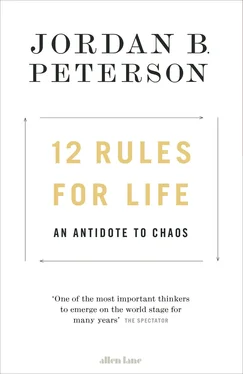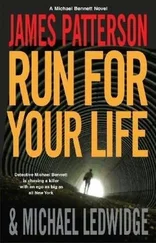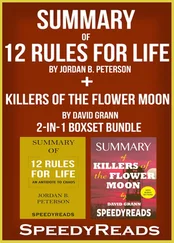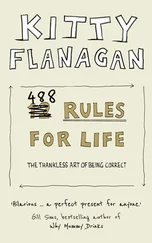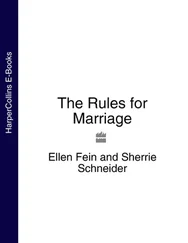The next set were associated with proper response to crisis and exhaustion:
What shall I do when my enemy succeeds? Aim a little higher and be grateful for the lesson. Back to Matthew: “Ye have heard that it hath been said, Thou shalt love thy neighbour, and hate thine enemy. But I say unto you, Love your enemies, bless them that curse you, do good to them that hate you, and pray for them which despitefully use you, and persecute you; That ye may be the children of your Father which is in heaven” (5:43-5:45). What does this mean? Learn, from the success of your enemies; listen (Rule 9) to their critique, so that you can glean from their opposition whatever fragments of wisdom you might incorporate, to your betterment; adopt as your ambition the creation of a world in which those who work against you see the light and wake up and succeed, so that the better at which you are aiming can encompass them, too.
What shall I do when I’m tired and impatient? Gratefully accept an outstretched helping hand. This is something with a twofold meaning. It’s an injunction, first, to note the reality of the limitations of individual being and, second, to accept and be thankful for the support of others—family, friends, acquaintances and strangers alike. Exhaustion and impatience are inevitable. There is too much to be done and too little time in which to do it. But we don’t have to strive alone, and there is nothing but good in distributing the responsibilities, cooperating in the efforts, and sharing credit for the productive and meaningful work thereby undertaken.
What shall I do with the fact of aging? Replace the potential of my youth with the accomplishments of my maturity. This hearkens back to the discussion of friendship surrounding Rule 3, and the story of Socrates’ trial and death—which might be summarized, as follows: A life lived thoroughly justifies its own limitations . The young man with nothing has his possibilities to set against the accomplishments of his elders. It’s not clear that it’s necessarily a bad deal, for either. “An aged man is but a paltry thing,” wrote William Butler Yeats, “A tattered coat upon a stick, unless/Soul clap its hands and sing, and louder sing/For every tatter in its mortal dress ….” 220
What shall I do with my infant’s death? Hold my other loved ones and heal their pain. It is necessary to be strong in the face of death, because death is intrinsic to life. It is for this reason that I tell my students: aim to be the person at your father’s funeral that everyone, in their grief and misery, can rely on. There’s a worthy and noble ambition: strength in the face of adversity. That is very different from the wish for a life free of trouble.
What shall I do in the next dire moment? Focus my attention on the next right move. The flood is coming. The flood is always coming. The apocalypse is always upon us. That’s why the story of Noah is archetypal. Things fall apart—we stressed that in the discussion surrounding Rule 10 (Be precise in your speech)—and the centre cannot hold. When everything has become chaotic and uncertain, all that remains to guide you might be the character you constructed, previously, by aiming up and concentrating on the moment at hand. If you have failed in that, you will fail in the moment of crisis, and then God help you.
That last set contained what I thought were the most difficult of all the questions I asked that night. The death of a child is, perhaps, the worst of catastrophes. Many relationships fail in the aftermath of such a tragedy. But dissolution in the face of such horror is not inevitable, although it is understandable. I have seen people immensely strengthen their remaining family bonds when someone close to them has died. I have seen them turn to those who remained and redouble their efforts to connect with them and support them. Because of that, all regained at least some of what had been so terribly torn away by death. We must therefore commiserate in our grief. We must come together in the face of the tragedy of existence. Our families can be the living room with the fireplace that is cozy and welcoming and warm while the storms of winter rage outside.
The heightened knowledge of fragility and mortality produced by death can terrify, embitter and separate. It can also awaken. It can remind those who grieve not to take the people who love them for granted. Once I did some chilling calculations regarding my parents, who are in their eighties. It was an example of the hated arithmetic we encountered in the discussion of Rule 5 (Do not let your children do anything that makes you dislike them)—and I walked through the equations so that I would stay properly conscious. I see my Mom and Dad about twice a year. We generally spend several weeks together. We talk on the phone in the interim between visits. But the life expectancy of people in their eighties is under ten years. That means I am likely to see my parents, if I am fortunate, fewer than twenty more times. That’s a terrible thing to know. But knowing it puts a stop to my taking those opportunities for granted.
The next set of questions—and answers—had to do with the development of character. What shall I say to a faithless brother? The King of the Damned is a poor judge of Being. It is my firm belief that the best way to fix the world—a handyman’s dream, if ever there was one—is to fix yourself, as we discussed in Rule 6. Anything else is presumptuous. Anything else risks harm, stemming from your ignorance and lack of skill. But that’s OK. There’s plenty to do, right where you are. After all, your specific personal faults detrimentally affect the world. Your conscious, voluntary sins (because no other word really works) makes things worse than they have to be. Your inaction, inertia and cynicism removes from the world that part of you that could learn to quell suffering and make peace. That’s not good. There are endless reasons to despair of the world, and to become angry and resentful and to seek revenge.
Failure to make the proper sacrifices, failure to reveal yourself, failure to live and tell the truth—all that weakens you. In that weakened state, you will be unable to thrive in the world, and you will be of no benefit to yourself or to others. You will fail and suffer, stupidly. That will corrupt your soul. How could it be otherwise? Life is hard enough when it is going well. But when it’s going badly? And I have learned through painful experience that nothing is going so badly that it can’t be made worse. This is why Hell is a bottomless pit. This is why Hell is associated with that aforementioned sin. In the most awful of cases, the terrible suffering of unfortunate souls becomes attributable, by their own judgment, to mistakes they made knowingly in the past: acts of betrayal, deception, cruelty, carelessness, cowardice and, most commonly of all, willful blindness. To suffer terribly and to know yourself as the cause: that is Hell. And once in Hell it is very easy to curse Being itself. And no wonder. But it’s not justifiable . And that’s why the King of the Damned is a poor judge of Being .
How do you build yourself into someone on whom you can rely, in the best of times and the worst—in peace and in war? How do you build for yourself the kind of character that will not ally itself, in its suffering and misery, with all who dwell in Hell? The questions and answers continued, all pertinent, in one way or another, to the rules I have outlined in this book:
What shall I do to strengthen my spirit? Do not tell lies, or do what you despise.
What shall I do to ennoble my body? Use it only in the service of my soul.
What shall I do with the most difficult of questions? Consider them the gateway to the path of life.
Читать дальше
